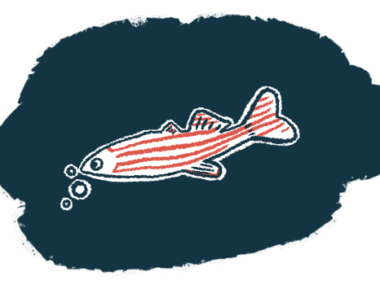I’m Learning to Embrace a New Shoe
Written by |

I’m notorious for despising new wheelchairs.
It’s not just the discomfort. It’s the painstaking process of calibration — tweaking and experimenting and grumbling under my breath, because my head needs to be tilted a certain way, and how am I supposed to adjust to a completely different headrest? Not to mention the body-mind disconnect that becomes apparent after hours of working on something as pedestrian as an elbow pad.
I should be able to move. My body knows what to do — an intrinsic, impossible knowledge, like a half-forgotten memory, flashes of a timeline in which I am able-bodied. But I can’t do it. And it’s infuriating.
“It’s like a new shoe,” my assistive technology professional (ATP) once said. “The old shoe is comfortable. Worn and familiar. But it’s also falling apart. The new shoe will be just as great as the old one, but you have to wear it for a while. You have to break it in.”
Looking back, I can see that my ATP was right. But I was a teenager, with everything that entails — an unearned sense of righteousness, tinged with annoyance, because naturally I knew it all. But I was also tired. We’d been working on the chair for hours with no signs of progress. I was sore, cranky, and hungry for something other than Arby’s potato cakes.
As I’m sure you can imagine, I did not take well to the “new shoe” metaphor.
A decade later, and the metaphor persists. “It’s like a new shoe,” my dad will say, and I’ll roll my eyes, making a sound somewhere between a laugh and a groan. It has become shorthand for a difficult, but necessary, experience.
The new shoe will be just as great as the old one, but you have to break it in.
I’ve had my current wheelchair since 2014. It sat in our basement for at least a year, a lingering reminder of everything I could not escape. I put it off for as long as I could, and I like to think my excuses were actually decent. I had just graduated high school! I was about to start college! I was severely depressed and slept until 4 p.m. every day! It was never the right time.
Eventually, my dad gave me no choice. And so I switched shoes.
I never quite adjusted to my current chair. I couldn’t stand the armrests that came with the model, so we salvaged the ones from my old chair, plonked them on top of the original armrests, and secured them with zip ties. The headrest is an heirloom, passed from one chair to the next. The padding is so thin I need to stick a washcloth behind my neck to prevent sores. It’s dusty and rickety and on the verge of falling apart, and it’s mine.
But no shoe lasts forever. It’s time for something new.
I am, for the first time, excited for the change. My body hurts; soreness is a common complaint. I’m more than ready to leave the house without a thick black washcloth stuffed behind my head. Not to mention the hand warmer add-on that I can’t stop thinking about. I’ll be unstoppable next winter.
But it’s still a new shoe. My ATP has since moved on, but every once in a while his words echo in my mind like a B-list voiceover: It’s like a new shoe.
It’s practically the same chair. But I’m still dreading the day-long seating appointment scheduled for next month — the weeks of tweaking and experimenting and grumbling under my breath, because what if I can’t adjust? What if I’m doomed to have a washcloth behind my neck for the rest of my days?
The new shoe will be just as great as the old one, but you have to break it in.
Still, I’m trying to remain optimistic. A lot has changed since 2014.
I took a risk and went with the latest-and-greatest seating option. My dad watched as ATPs sucked all of the air out of a beanbag and literally formed it to my body. A computer would then spit out a mold that was perfectly contoured to my form. It would be a month-long process, but worth it in the end.
Two middle-aged men stared down at me, poking and prodding and asking about my hip rotation. I stared at the ceiling and thought about new shoes. A few minutes later, the beanbag shrunk around me, squeezing until I felt like I was about to pop.
Later, after Dad freed my head from its tiny little cleft, I said, “You know in ‘Star Wars’ when they’re being crushed by the trash compactor? That’s what that felt like.”
Dad laughed. “I thought you were going to say when they froze Han in carbonite.”
I like to think my metaphor-loving ATP would be proud.
***
Note: SMA News Today is strictly a news and information website about the disease. It does not provide medical advice, diagnosis, or treatment. This content is not intended to be a substitute for professional medical advice, diagnosis, or treatment. Always seek the advice of your physician or other qualified health provider with any questions you may have regarding a medical condition. Never disregard professional medical advice or delay in seeking it because of something you have read on this website. The opinions expressed in this column are not those of SMA News Today, or its parent company, Bionews, and are intended to spark discussion about issues pertaining to spinal muscular atrophy.




Leave a comment
Fill in the required fields to post. Your email address will not be published.